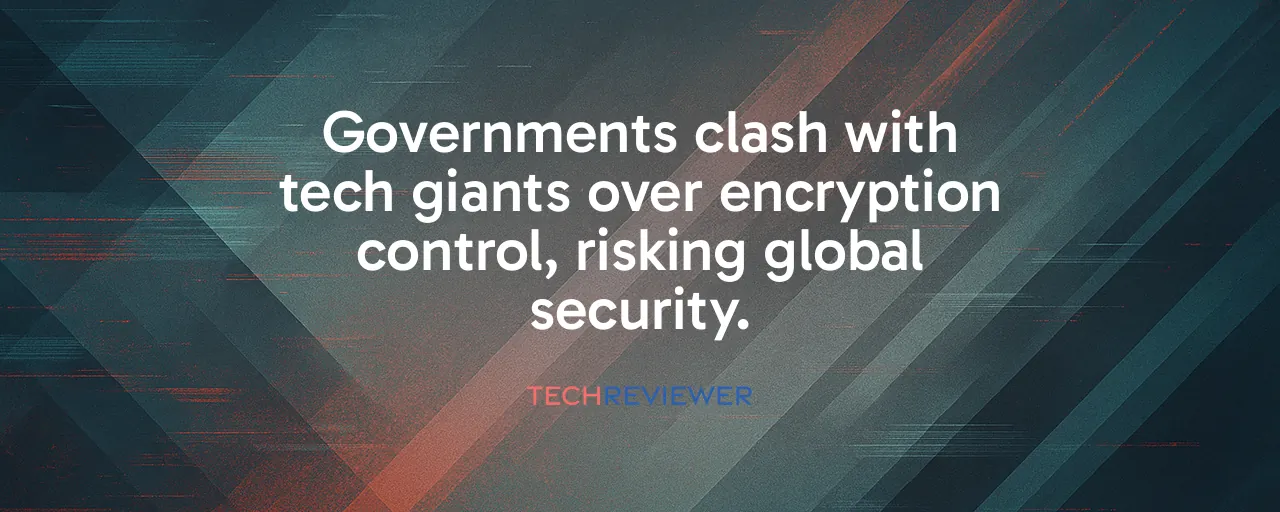The Encryption Tug-of-War
When you send a message on WhatsApp or back up your photos to iCloud, you trust that your data stays private. That trust hinges on encryption, the tech that locks your information away from prying eyes. But lately, governments worldwide are pulling at that lock. The U.S. Federal Trade Commission recently sent a sharp warning to companies like Apple, Google, and Signal: don't bow to foreign demands that weaken encryption or censor users. Doing so, the FTC says, could violate U.S. law and erode the confidence users place in these platforms.
The issue came to a head when Apple was forced to remove support for iCloud end-to-end encryption in the United Kingdom due to UK demands. The demand, tied to the UK's Investigatory Powers Act, would have let authorities access user data. Apple pushed back, refusing to create a backdoor that could compromise security worldwide. After U.S. diplomatic pressure, the UK backed off, but the episode highlights a growing tension. Governments want access to data for security; users and companies demand privacy. It's a high-stakes standoff with no easy resolution.
Why Encryption Can't Bend
Encryption is a fundamental promise of privacy and security. Technologies like Signal's double-ratchet protocol or Apple's Advanced Data Protection ensure that only you and your intended recipient can access your data. Security experts are clear: any backdoor, even for law enforcement, creates a vulnerability. Once a key exists, it's a target for hackers, rival governments, or even disgruntled insiders. Academic studies back this up, showing that mandatory key escrow systems increase the risk of cyberattacks, potentially costing billions in damages.
Take Apple's iCloud case in the UK. The proposed Technical Capability Notice would have forced Apple to unlock backups, undermining its global encryption standard. Apple argued that such a change would weaken security for all users globally. Similarly, Meta's end-to-end encryption on WhatsApp and Messenger faced scrutiny under the EU's Digital Services Act, which pushes for broader content monitoring. These examples show how local laws can ripple globally, threatening the uniform security tech companies strive to provide.
Lessons From Down Under
Australia's 2018 Assistance and Access Act offers a stark lesson in how encryption debates can reshape tech. The law required companies to provide law enforcement with access to encrypted data, sparking what experts call 'encryption balkanization.' Firms like Mozilla had to pull privacy features in some regions to comply, fragmenting their offerings. Users ended up with uneven protections depending on where they lived, a headache for both developers and customers.
Contrast this with Apple's UK stand. By resisting the iCloud demand, Apple preserved its global encryption standard, but at a cost. Refusing to comply risks fines or market exclusion in some countries. Meanwhile, users face confusion: why does the same app work differently across borders? Australia's case shows that fragmented rules can erode trust, as users question whether their data is truly secure. Apple's victory in the UK, however, suggests that diplomatic pushback and public pressure can sway regulators.
Balancing Privacy and Public Safety
Not everyone sees encryption as the hero. Law enforcement argues that unbreakable encryption shields criminals, from traffickers to terrorists. The UK's Online Safety Act, for instance, emphasizes child protection, pushing for client-side scanning to detect illegal content. Supporters say these measures save lives. But privacy advocates, including groups like the Electronic Frontier Foundation, counter that scanning undermines security for everyone. Journalists, activists, and everyday users rely on encryption to protect against threats like stalking or corporate espionage.
The FTC's warning puts companies in a bind. Complying with foreign laws could trigger U.S. penalties for deceptive practices, especially if firms advertise robust security while secretly weakening it. Yet defying regulators risks legal battles abroad. Signal, for example, has indicated a strong preference to exit markets rather than compromise its encryption. This stance resonates with users but complicates global operations, as companies juggle conflicting laws and user expectations.
What's Next for Privacy
The encryption fight is far from over. As governments push for access, tech companies are doubling down on privacy-preserving solutions. Innovations like secure enclaves and homomorphic encryption aim to let authorities analyze data without breaking encryption. Cloudflare's work on post-quantum key exchanges shows how the industry is preparing for future threats. But these advances take time, and scaling them across global platforms is no small feat.
For users, the stakes are personal. Weakened encryption could expose sensitive data, from financial records to private messages. For companies, it's a question of trust and survival. If Apple or Meta can't deliver on their privacy promises, users may turn to smaller, privacy-first platforms like Signal. The FTC's stance offers a lifeline, urging firms to prioritize U.S. users' security. But as global rules diverge, the tech world faces a fragmented future where privacy might depend on geographical jurisdiction.
